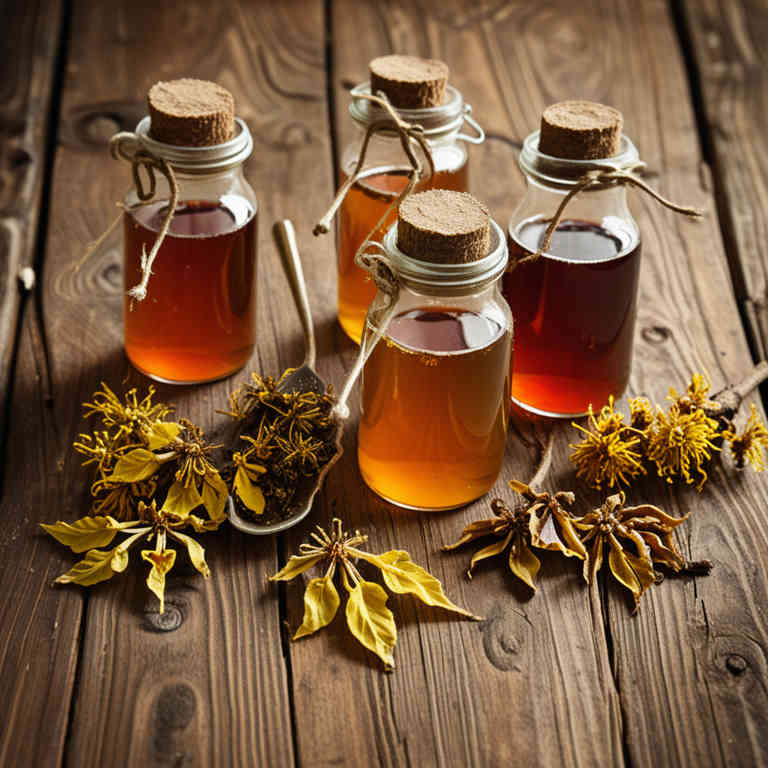Hamamelis virginiana syrup for medicinal use

Hamamelis virginiana syrup is a traditional herbal preparation made from the bark and leaves of the witch hazel plant.
It is commonly used in herbalism for its astringent and anti-inflammatory properties. The syrup is often applied topically to treat skin irritations, hemorrhoids, and minor wounds. It may also be taken internally to soothe digestive issues and reduce inflammation in the gastrointestinal tract.
Due to its potent effects, it is typically used under the guidance of a qualified herbalist or healthcare provider.
Uses
Hamamelis virginiana syrup has been used to treat various ailments, particularly those related to the skin and mucous membranes.
Historically, Native American tribes utilized the bark of the witch hazel plant for its astringent properties, applying it to wounds, rashes, and insect bites. In traditional medicine, it was also used to soothe sore throats and reduce inflammation. Modern applications include its use as a natural remedy for colds, coughs, and minor skin irritations, often found in herbal remedies and over-the-counter products.
Today, it is still valued for its soothing and anti-inflammatory effects, making it a popular choice in alternative and complementary medicine.
Benefits
Hamamelis virginiana syrup has health benefits such as soothing inflammation, promoting wound healing, and supporting skin health.
It is commonly used to treat conditions like hemorrhoids, eczema, and varicose veins due to its astringent properties. The syrup contains compounds that help reduce swelling and irritation, making it effective for minor skin irritations and urinary tract infections. It also has antiseptic qualities that can aid in preventing infections.
This herbal preparation is often recommended for its natural ability to calm and protect the skin and mucous membranes.
Constituents
Hamamelis virginiana syrup active constituents include tannins, flavonoids, phenolic acids, and mucilage.
These compounds contribute to its astringent and anti-inflammatory properties. Tannins help to reduce inflammation and soothe irritated tissues, making it useful for conditions like hemorrhoids and skin irritations. Flavonoids and phenolic acids provide antioxidant benefits, supporting overall health and immune function.
Mucilage acts as a protective layer, aiding in the healing of mucous membranes.
Preparation
To make Hamamelis virginiana syrup, first gather 1 cup of dried Hamamelis virginiana flowers, 2 cups of water, and 1 cup of honey or sugar.
In a saucepan, bring the water to a boil, then add the dried flowers and let it simmer for about 20 minutes. Strain the mixture through a fine mesh strainer or cheesecloth to remove the plant material. Pour the liquid into a bowl and allow it to cool slightly before adding the honey or sugar, stirring until fully dissolved.
Store the syrup in a clean, airtight container in the refrigerator for up to two weeks.
Side Effects
Hamamelis virginiana syrup may lead to gastrointestinal discomfort, including nausea, vomiting, and diarrhea, due to its high concentration of tannins.
It can also cause constipation because of its astringent properties. Prolonged use may result in the absorption of heavy metals, particularly if the syrup is improperly prepared or sourced. Individuals with kidney disease should use it cautiously, as it may increase the risk of toxicity.
It is important to consult a healthcare provider before using this preparation, especially for long-term or high-dose applications.